Reconnecting People of Color to the Land on their Own Terms
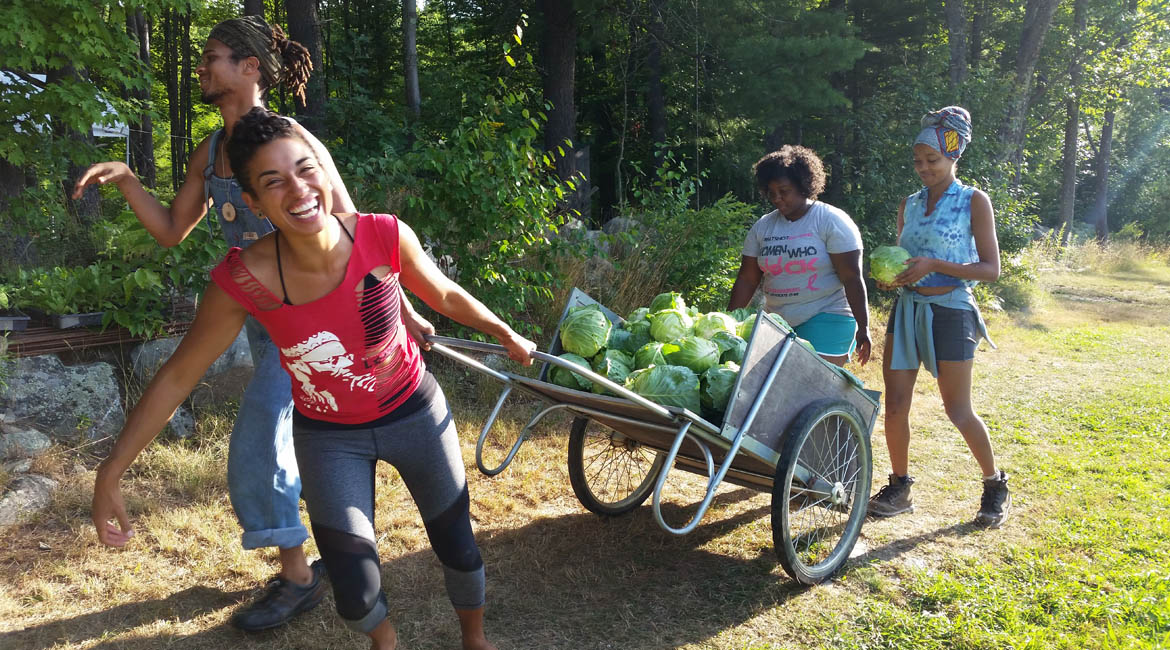
The sun is up at Soul Fire Farm. Morning dew on young greens catches the light and begins to dissipate as a small team moves about the fields harvesting the highlights of late spring: oregano, mint, lemon balm, lettuce, green garlic, radishes, baby beets and kale. The bounty will soon make its way into farm boxes for delivery to nearly 100 nearby families, many of whom identify as “low income,” as part of the farm’s sliding-scale CSA (Community Supported Agriculture) program.
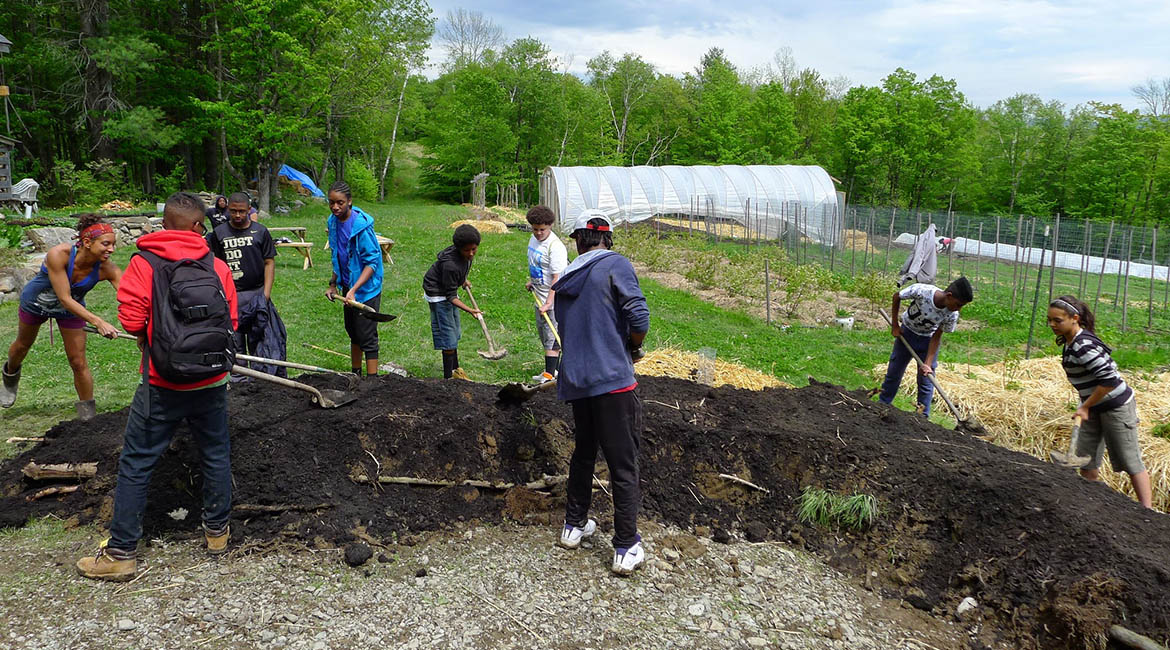
By midmorning, a group of teenagers arrives. They’ve made the bus ride an hour and a half north, and as they file out they explode like a joy tornado over the land. For many of the Black, Haitian, Pakistani and Latinx youth, this is their first experience being on a farm. Between catching frogs, singing songs and getting a taste of farm work, they learn about the history of Black land loss, resistance, and the reparations movement. They rehearse skits demonstrating what they’re learning, and when one of them accidentally drops a shovel in the farm’s pond, they work together to figure out how to retrieve it. For lunch, the group gathers around an impromptu make-your-own-burrito station and pile their bowls high with just-picked kale, oregano, scallions and tomatoes thawed from last year’s harvest. There are a few murmurs about the lack of meat on the menu, but with appetites growing, they dig in. When seconds are called, the kids push past each other to refill their plates, leaving the serving table empty. Satiated, the group heads for their bus, waving goodbye to the farm team who are already prepping the farm for the evening and what tomorrow may bring.
“We are the community we serve,” says Leah Penniman, the author, educator, and activist who co-founded Soul Fire Farm with her husband, Jonah Vitale-Wolff, in 2011. “Our organization at all levels is entirely led by Black, Indigenous and people of color, and those are the communities that we predominantly work with.”
"Between catching frogs, singing songs and getting a taste of farm work, they learn about the history of Black land loss, resistance, and the reparations movement."
A Place for Creating A New Food Culture
Located in Grafton, New York, Soul Fire Farm is not just a working farm and training ground for aspiring farmers of color to learn about sustainable agriculture, it’s a place for creating a new food culture through activism and healing. “There are a lot of tears,” Penniman says. “As my friend says, ‘the land was the scene of the crime.’ It’s where slavery and sharecropping and all the oppression took place, but I would add that she [the land] was never the criminal. In fact, the land was probably the reason we survived.”
Confronting our country’s historical land- and food-based oppression of people of color illuminates the unjust practices of our current corporate industrial food system, where farmers of color continue to be on the front lines. Today, 85% of farm labor in the U.S. is performed by Latinx workers, even though this group owns only 3% of farms. Labor laws passed in the 1930s still exclude farm workers from basic protections afforded to nearly every other employee in the country, including, in some cases, a minimum wage.“The life expectancy for farm workers, despite their good health when they arrive in this country, is very, very low,” Penniman says.
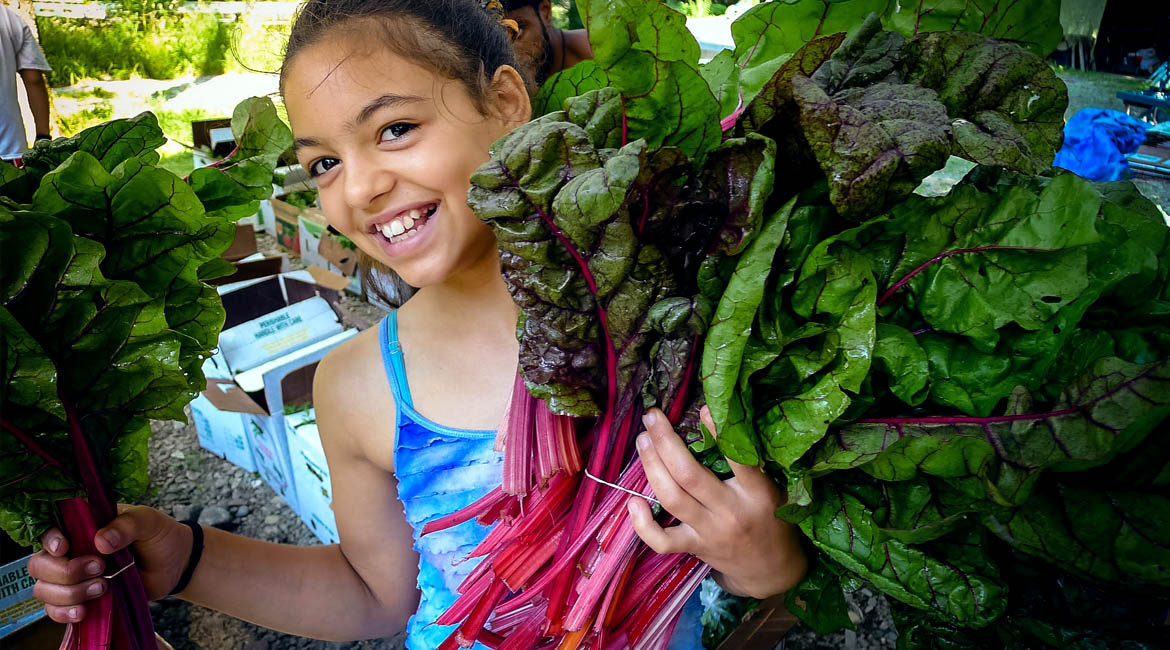
Best for the Body, Best for the Planet
Inequality persists not just in how food is produced, but also who gets to eat healthy food. Communities of color continue to suffer disproportionately from diet-related illnesses such as diabetes, heart disease and obesity — a phenomenon often associated with living in “food deserts,” which Penniham calls “food apartheid.”
“The word desert implies something natural. A desert is an ecosystem. There’s something benign and inevitable about it,” she says. “In fact, a system where entire communities do not have access to fresh, healthy and culturally appropriate food is really rooted in a legacy of discrimination. Your zip code should not be a predictor of life expectancy. A big part of what we do is make sure our food is going to people who would otherwise be excluded from access.”
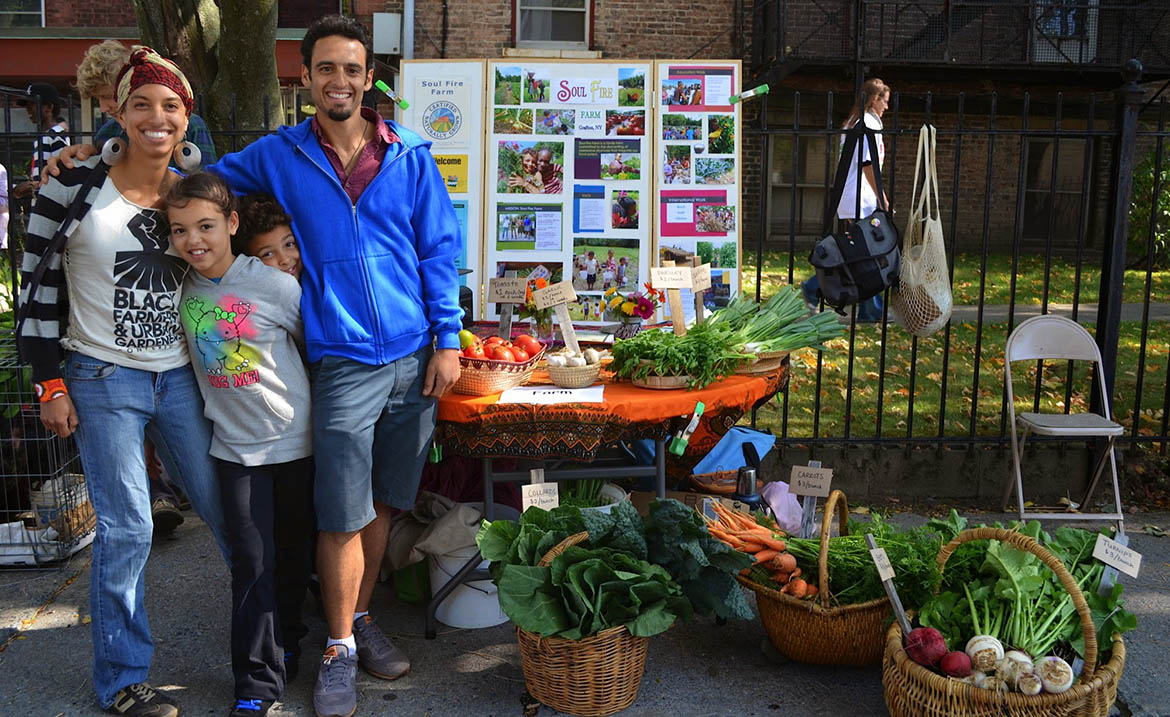
Then there are the environmental impacts. While the regenerative farming practices used at Soul Fire are a source of carbon sequestration, commercial industrial agriculture usually has the opposite effect. Raising livestock for meat, eggs and milk generates 14.5% of global greenhouse gas emissions, the second highest source of human-caused emissions and more than all forms of transportation combined. Huge swaths of the Gulf of Mexico are toxic dead zones because of harmful fertilizer runoff, while manure and off-gassing from CAFOs (concentrated animal feeding operations) cause toxic air pollution in nearby communities, as well as methane emissions that contribute to climate change.
"The Earth has an opportunity to provide support. She is the ultimate composter. Whatever you’re dealing with — grief, pain, tragedy — she can turn it to hope, joy and possibility."
Reconnection Brings Healing
Bringing people of color back to the land can be a vehicle for healing, Penniman says. Currently, 98% of the farmable land in the United States is owned by white people. A hundred years ago, 14% of farms were Black-owned. Penniman notes that the displacement of people of color from the land (through harmful and oppressive practices) coincides with the corporate consolidation of farmland and wealth in the food system. Reminding current and future generations of the rich history of Black farming is key to reversing that inequality, she says. “When I was a teenager, I needed a book written for and by black farmers,” Penniman says. “I really questioned my place in the movement. I didn’t know anything about the proud, noble history of Black farming. I only knew about slavery.”
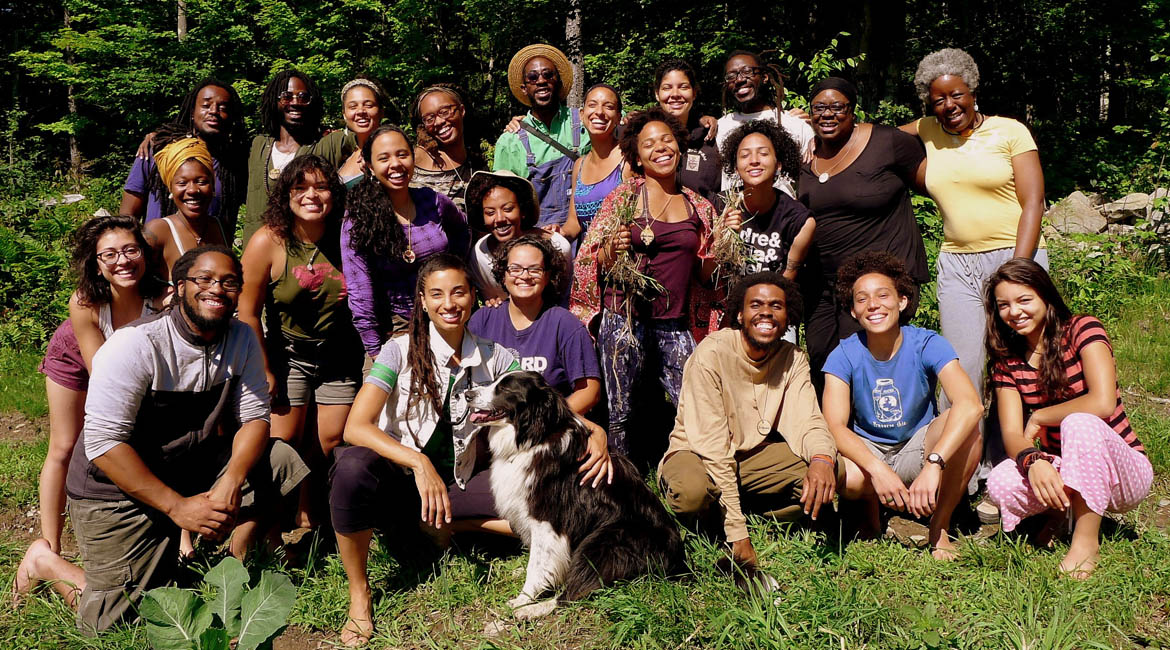
Unearthing the Rich Legacy of Black Farmers
Penniman wrote the book she wished she’d had growing up: Farming While Black: Soul Fire Farm’s Practical Guide to Liberation on the Land. In addition to sharing farming innovations pioneered by Black farmers — such as the creation of vermiculture, or worm composting, by Cleopatra; and cover-cropping by George Washington Carver — she gives readers practical tools for starting their own farms. And, building on the success of Soul Fire’s youth programs, which operate at capacity and often have waiting lists, Farming While Black also provides curriculum for educational programming. All proceeds from the book support a fund for Black farmers seeking to acquire land.
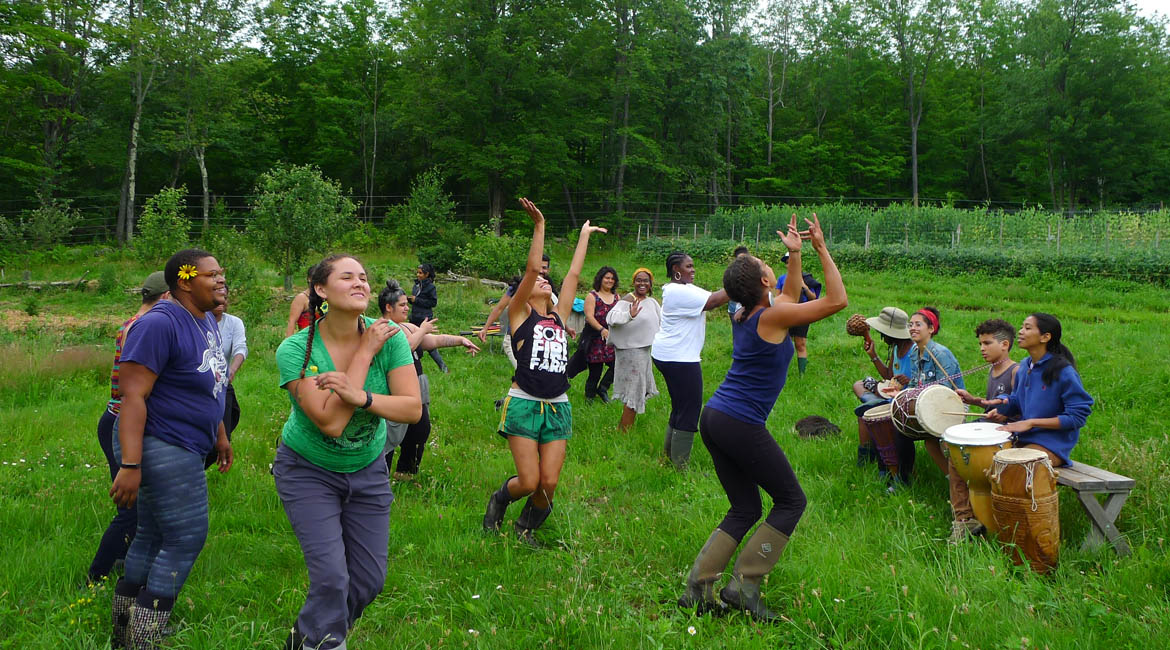
“I wanted to have this book for future generations,” she says. “In trying to flee oppression, we ran from the red clay of Georgia to the paved streets of the urban north, and that left behind a big source of our strength and our belonging. When folks come back to the land on their own terms, they come back in a way where they have choice, they have dignity. The Earth has an opportunity to provide support. She is the ultimate composter. Whatever you’re dealing with — grief, pain, tragedy — she can turn it to hope, joy and possibility.”
What's Next?
Visit our our blog for more stories of others fighting for a better food system.


